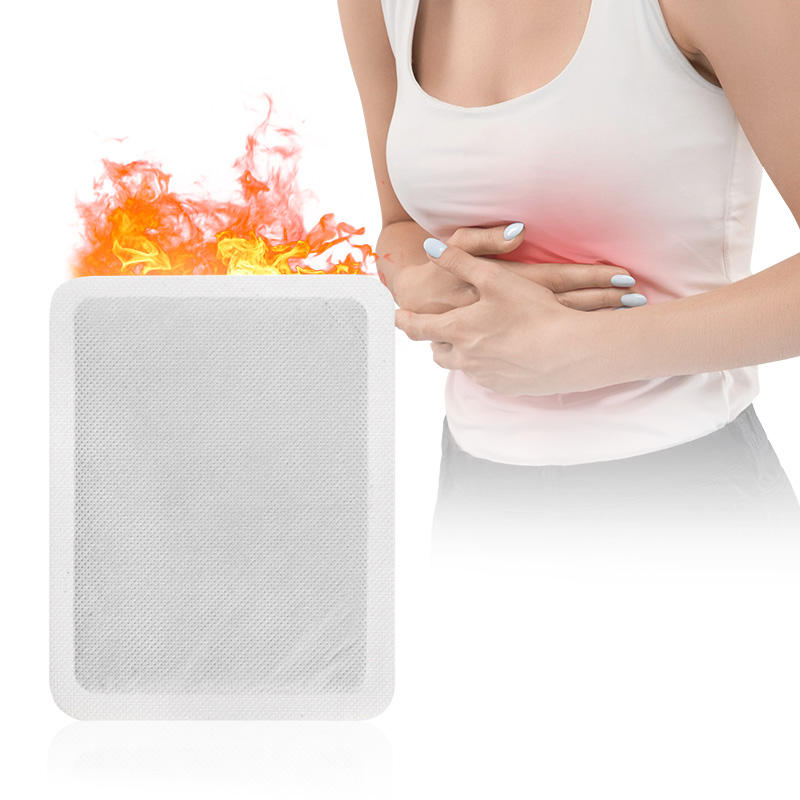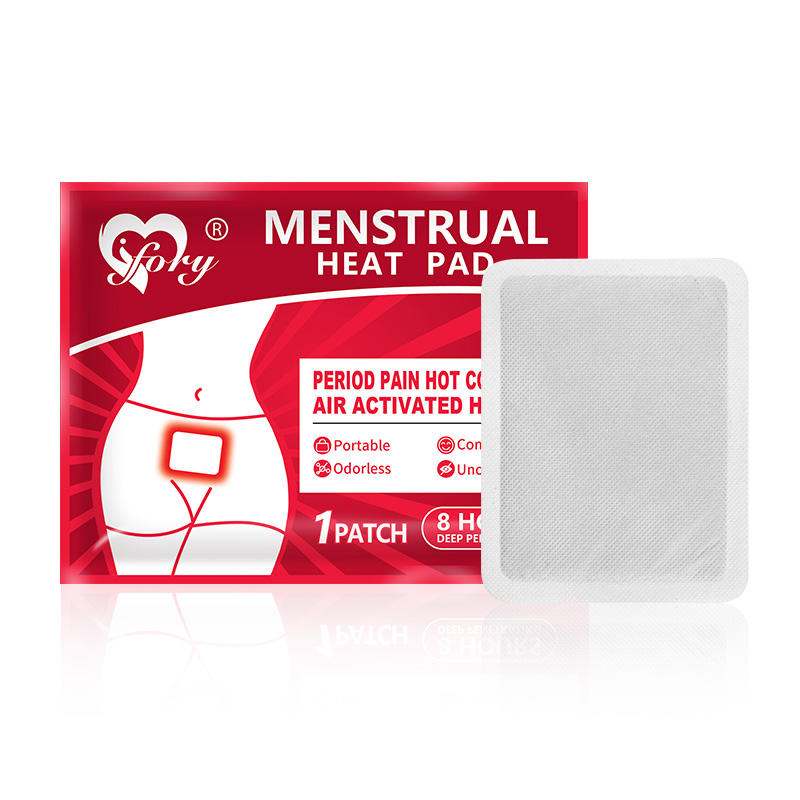How Important Is Sustainability in the Menstrual Heat Pad Market?
As consumers become increasingly aware of environmental concerns, the demand for sustainable products is spreading across nearly every industry—including personal care and wellness. The menstrual heat pad market is no exception, as more consumers prioritize eco-friendly alternatives. Menstrual heat pads are a popular option for natural cramp relief, and sustainable options are becoming a key differentiator for brands and manufacturers. This article delves into the importance of sustainability within the menstrual heat pad market and examines the role of Menstrual Heat Pad Manufacturers, Menstrual Heat Pad OEMs, Custom Menstrual Heat Pads, and Private Label Menstrual Heat Pads in meeting consumer expectations for eco-conscious products.

1. Rising Demand for Sustainable Menstrual Products
Key Points:
- Consumer Awareness and Preference: With increasing awareness of environmental issues, consumers are actively seeking products with minimal ecological impact. For menstrual products, this means looking for reusable, biodegradable, or recyclable options.
- Focus on Natural Materials: Many consumers prioritize products made from natural, organic, or biodegradable materials, which are less likely to contribute to long-term waste. In the menstrual heat pad market, this can include using eco-friendly adhesives, natural heating components, and sustainable packaging.
The Role of Menstrual Heat Pad OEMs:
Menstrual Heat Pad OEMs are essential in the creation of sustainable products. They are often equipped with the resources and technology to develop eco-friendly alternatives, helping brands meet the sustainability demands of their target audience. Working with a Menstrual Heat Pad OEM also allows brands to create custom solutions that align with their sustainability goals.
2. Eco-Friendly Materials in Menstrual Heat Pads
Key Points:
- Biodegradable Heating Elements: Many standard menstrual heat pads use materials like iron powder, salt, or activated carbon for heat generation. While effective, some of these components are not biodegradable. Sustainable options may include naturally derived heat elements that are compostable or recyclable.
- Organic Fabrics and Adhesives: Using organic cotton or other plant-based materials for the outer layer can reduce the environmental footprint. Eco-friendly adhesives derived from plant-based or non-toxic sources help ensure the entire product is more sustainable.
Impact on Manufacturers and Suppliers:
Menstrual Heat Pad Manufacturers and Menstrual Heat Pad Suppliers who invest in sustainable materials gain a competitive advantage. By offering Custom Menstrual Heat Pads with organic fabrics and eco-friendly adhesives, manufacturers not only meet consumer demands but also align their production with sustainability initiatives.
3. Reducing Single-Use Waste
Key Points:
- Reusable Options: Although disposable menstrual heat pads are convenient, they contribute to waste, especially for those with monthly use. Some brands are exploring reusable menstrual heat pad options, which can be recharged and reused multiple times, significantly reducing single-use waste.
- Compostable and Biodegradable Pads: For consumers seeking disposable options, compostable and biodegradable heat pads offer a more sustainable choice. These pads break down faster and reduce landfill waste.
Role of Private Label Solutions:
Private Label Menstrual Heat Pads offer brands the opportunity to bring unique, eco-friendly solutions to the market. By choosing a Menstrual Heat Pad Supplier focused on sustainable options, brands can develop biodegradable or reusable pads under their own branding, addressing consumer preferences for low-waste products.
4. Sustainable Packaging Solutions
Key Points:
- Reducing Plastic Usage: Traditional menstrual heat pads are often packaged in plastic, which contributes to environmental waste. Sustainable packaging options, such as compostable or recyclable materials, are increasingly popular among consumers who want to reduce plastic waste.
- Minimalist and Recyclable Packaging: Using minimalist designs and fully recyclable or compostable packaging materials can reduce waste without compromising product integrity.
Support from OEMs and Manufacturers:
Menstrual Heat Pad OEMs and Menstrual Heat Pad Manufacturers are now prioritizing sustainable packaging options, offering brands customized packaging solutions that reduce environmental impact. For Private Label Menstrual Heat Pads, manufacturers can design packaging that reflects a brand's commitment to sustainability, enhancing consumer trust and appeal.
5. Energy-Efficient Production Practices
Key Points:
- Lowering Carbon Emissions: Eco-conscious consumers appreciate knowing that products are manufactured with minimal environmental impact. Reducing energy consumption during production and lowering carbon emissions are essential steps.
- Sustainable Sourcing and Manufacturing: Menstrual Heat Pad Manufacturers can source materials sustainably, opting for suppliers that follow responsible environmental practices. These practices help reduce the overall ecological footprint and appeal to conscious consumers.
Importance for Menstrual Heat Pad Suppliers:
Menstrual Heat Pad Suppliers who invest in sustainable practices are more likely to attract brands looking to launch eco-friendly products. Sustainable sourcing, energy-efficient manufacturing, and transparent supply chains are all valued by brands seeking Menstrual Heat Pad OEM services to develop sustainable products.
6. Corporate Responsibility and Brand Image
Key Points:
- Alignment with Consumer Values: For many consumers, a brand’s commitment to sustainability reflects positively on its values. Brands that provide eco-friendly Custom Menstrual Heat Pads can attract customers who prioritize environmental responsibility.
- Transparency in Practices: Brands that openly share their sustainability practices, including sourcing, manufacturing, and packaging, often gain customer loyalty. Transparent communication around product development and environmental impact can strengthen a brand’s image.
Impact of Private Label and OEM Partnerships:
Menstrual Heat Pad OEM providers help brands uphold a commitment to sustainability by supplying transparent information about their materials, practices, and sourcing. For Private Label Menstrual Heat Pads, OEM partners that prioritize corporate responsibility can enhance a brand's reputation in the market.
7. Certifications and Eco-Labels
Key Points:
- Third-Party Certifications: Eco-labels and certifications like USDA Organic, Fair Trade, and Global Organic Textile Standard (GOTS) can validate a product’s environmental claims. These certifications assure consumers that the products meet rigorous sustainability standards.
- Consumer Trust: Certified products provide a level of trust for eco-conscious consumers, assuring them that the product aligns with their values. Certifications are especially important in the personal care market, where consumers are careful about product claims.
Benefits for Manufacturers and Suppliers:
Menstrual Heat Pad Manufacturers that secure certifications for sustainable materials and processes add value to their products. When a Menstrual Heat Pad Supplier can provide certified materials for Custom Menstrual Heat Pads, they help brands deliver on sustainability promises, building consumer trust and brand loyalty.
Commonly Asked Questions About Sustainability in the Menstrual Heat Pad Market
1. Are there reusable menstrual heat pads available?
- Yes, some brands offer reusable menstrual heat pads, which can be recharged and used multiple times, reducing waste.
2. What are eco-friendly materials in menstrual heat pads?
- Eco-friendly menstrual heat pads may use organic fabrics, biodegradable heating elements, and non-toxic, plant-based adhesives to reduce environmental impact.
3. How can I find a sustainable Menstrual Heat Pad Supplier?
- Look for suppliers who offer eco-friendly materials, energy-efficient manufacturing, and sustainable packaging options. Certifications and transparency are also good indicators.
4. Is sustainable packaging available for menstrual heat pads?
- Many Menstrual Heat Pad Manufacturers now offer recyclable or compostable packaging solutions to reduce plastic waste.
5. What certifications should I look for in eco-friendly menstrual heat pads?
- Look for certifications like USDA Organic, GOTS, and Fair Trade, which verify sustainable materials and ethical production practices.
6. How does a Menstrual Heat Pad OEM contribute to sustainability?
- Menstrual Heat Pad OEMs support sustainability by providing customized options for reusable pads, eco-friendly materials, and sustainable packaging to help brands meet environmental goals.
In conclusion, sustainability is not only crucial but also a differentiator in the menstrual heat pad market. With consumers increasingly focused on eco-friendly products, Menstrual Heat Pad Manufacturers, Menstrual Heat Pad OEMs, and suppliers have the opportunity to lead in sustainable practices, offering brands and consumers responsible and effective menstrual heat pad solutions.






